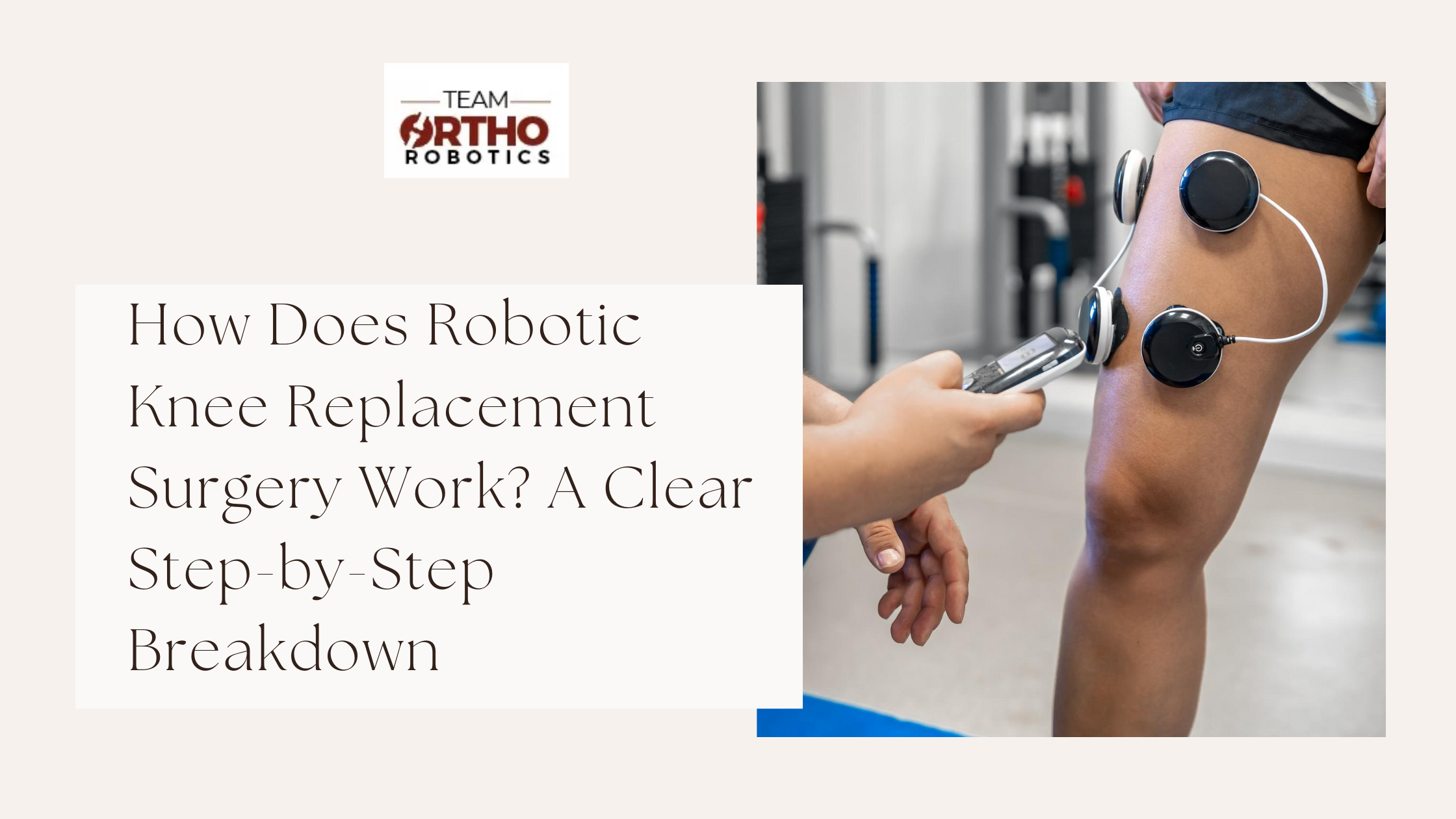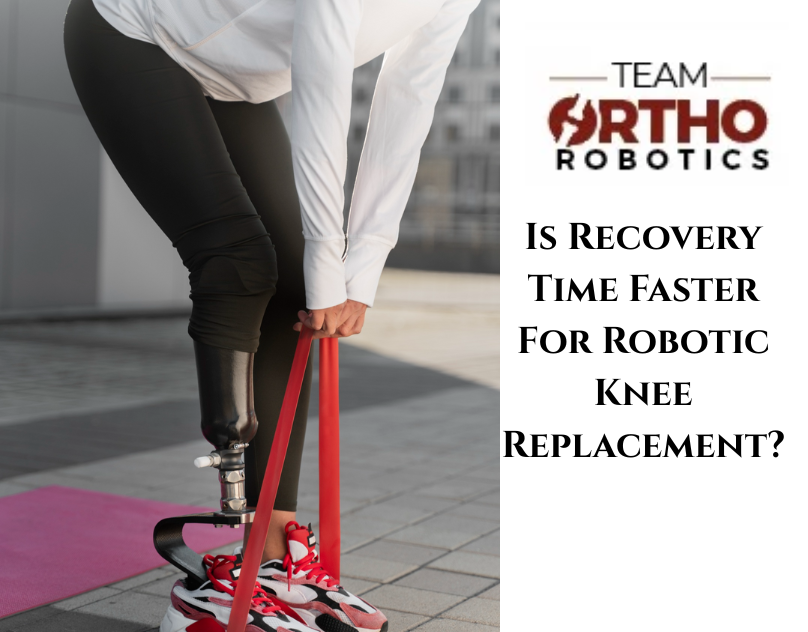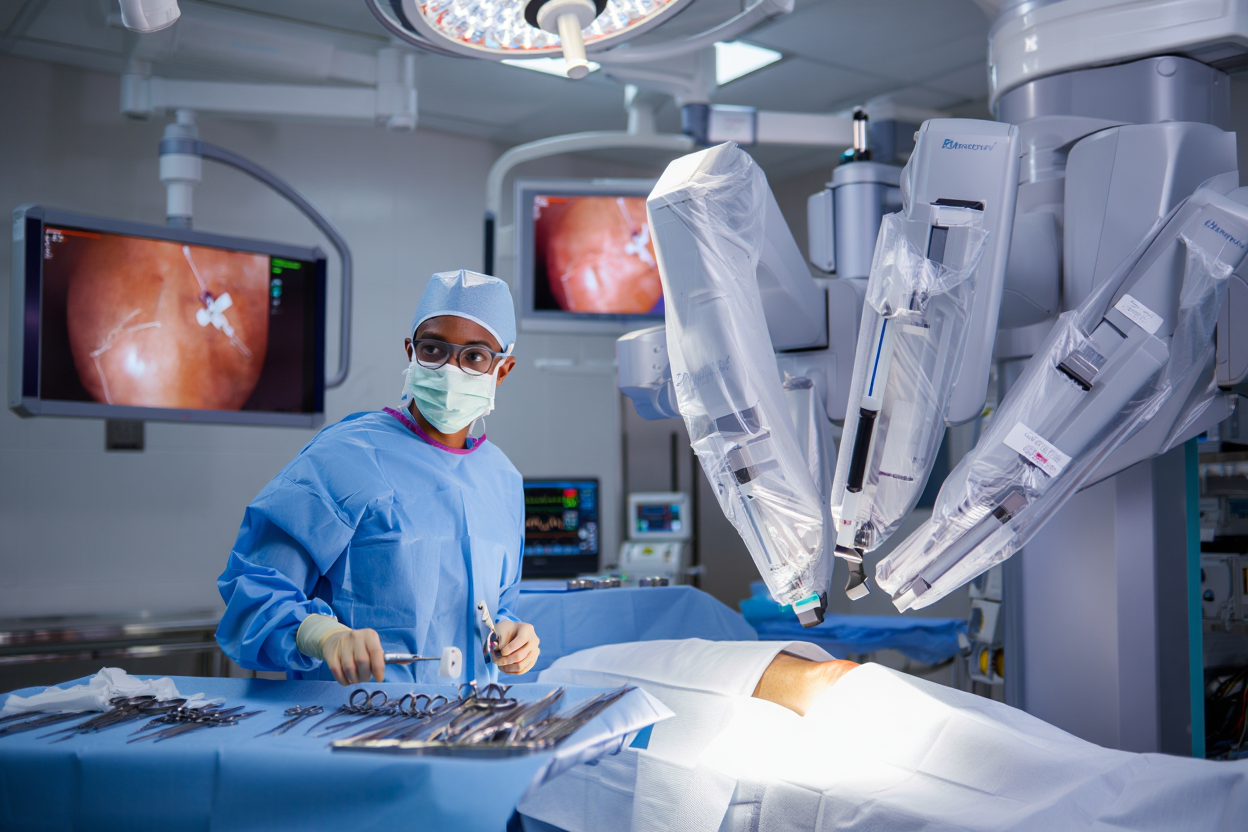Knee pain is a widespread condition affecting millions of people globally, especially as they age or suffer injuries from athletic or repetitive activities. While traditional knee surgeries have long been the go-to treatment, a new frontier in regenerative medicine—stem cell therapy—is beginning to reshape the way orthopedic care is delivered. When combined with cutting-edge innovations like robotic knee replacement surgery in Mumbai, patients now have more sophisticated, personalized options than ever before.
Understanding Knee Degeneration and the Traditional Approach
The knee is a complex joint, and over time, conditions like osteoarthritis, cartilage wear, or ligament damage can impair its function. Traditionally, treatment has focused on physical therapy, pain management, or surgical intervention such as total or partial knee replacement. In recent years, the introduction of robotic knee replacement in Mumbai has offered patients a more accurate and minimally invasive option compared to manual procedures. Robotic systems enhance the surgeon’s precision, leading to faster recovery times and better joint alignment.
However, not every patient is immediately ready—or willing—for knee replacement. This is where stem cell therapy comes in as a promising alternative or complementary treatment.
What is Stem Cell Therapy?
Stem cells are the body’s raw materials—cells from which all other cells with specialized functions are generated. In knee therapy, mesenchymal stem cells (MSCs), typically derived from bone marrow or adipose tissue, are used. These cells have the potential to regenerate cartilage, reduce inflammation, and improve the function of damaged tissues.
Unlike synthetic joint replacements, stem cell therapy aims to repair and restore natural knee structure. It’s minimally invasive and is typically administered through injections into the affected joint under image guidance.
Current Applications in Knee Care
- Early-Stage Osteoarthritis: Patients with mild to moderate osteoarthritis often respond well to stem cell injections. The treatment helps reduce pain and stiffness while potentially slowing disease progression.
- Meniscal Tears and Cartilage Damage: These injuries, common in athletes and active individuals, can benefit from stem cell therapy by accelerating tissue healing.
- Post-Surgical Recovery: Some orthopedic surgeons are now using stem cells to enhance recovery after surgical procedures, including partial meniscectomy or microfracture surgery.
These developments are particularly relevant in urban centers like Mumbai, where state-of-the-art hospitals offer integrated approaches—combining biologic treatments like stem cells with robotic knee replacement surgery in Mumbai for cases where structural correction is also required.
Complementing Robotic Knee Replacement
Stem cell therapy is not seen as a direct substitute for knee replacement in severe arthritis cases, but it can be a valuable adjunct. In patients undergoing robotic knee replacement in Mumbai, stem cells may help in healing surrounding soft tissues or optimizing post-operative recovery.
Moreover, in partial knee replacements or uni-compartmental arthritis, stem cell therapy might extend the life of the remaining natural joint, delaying the need for full knee replacement. Hospitals and orthopedic surgeons are exploring these hybrid models to provide personalized treatment plans based on the patient’s condition, age, and activity level.
Research and Statistics
Numerous clinical studies support the efficacy of stem cell therapy in improving knee function. According to a 2022 report published in the Journal of Translational Medicine, over 70% of patients with osteoarthritis who received MSC therapy reported significant improvements in pain and mobility after six months. Another study from the American Journal of Sports Medicine showed that athletes returned to activity more quickly after receiving stem cell therapy for meniscus and ligament injuries.
In India, the trend is catching on as urban centers like Mumbai continue to adopt regenerative medicine in their orthopedic practices. Paired with robotic technology, outcomes have become not just about managing pain but restoring mobility with minimal downtime.
Cost and Accessibility
Stem cell therapy is still considered experimental in some parts of the world and can be costly. However, in India, the price point is considerably lower compared to Western countries. Mumbai, in particular, has emerged as a hub for advanced orthopedic solutions including robotic knee replacement surgery in Mumbai, where leading hospitals offer packages that bundle diagnostics, surgery, and regenerative options under one roof.
It’s also worth noting that insurance coverage for stem cell therapy may vary, as many insurers still classify it under experimental treatments. Patients should consult with their healthcare providers and insurers to understand their options fully.
Ethical and Regulatory Considerations
With great innovation comes the need for careful oversight. Not all stem cell therapies are created equal, and patients should be wary of unregulated clinics offering miracle cures. In India, stem cell treatments are governed by the Indian Council of Medical Research (ICMR), which has set guidelines to ensure ethical practices and patient safety.
When seeking treatment, especially in specialized centers offering robotic knee replacement in Mumbai, it’s essential to choose hospitals that are approved for stem cell-based interventions and have qualified orthopedic and regenerative medicine teams.
Future Outlook
The fusion of biologics like stem cells with robotic precision marks the future of orthopedic care. As technology and research continue to evolve, we may see further integration of stem cell therapy in standard post-operative care or even as a standalone treatment for early knee degeneration.
Ongoing clinical trials and improvements in cell harvesting techniques are expected to improve the consistency of outcomes. In the near future, we could be looking at off-the-shelf stem cell products and advanced imaging to guide injections more effectively.
Conclusion
Stem cell therapy is opening up a new chapter in orthopedic medicine, especially in managing knee conditions. While it may not yet replace surgical intervention for all cases, its potential to delay or enhance robotic knee replacement surgery in Mumbai is undeniable. With promising clinical results, a growing base of experienced practitioners, and increasing patient interest, stem cell therapy is no longer a distant dream—it’s a reality that’s evolving rapidly.
For those considering options for knee care, consulting with a specialist who understands both robotic technology and regenerative treatments is the best way forward. The future of knee health is here, and it’s regenerative, precise, and patient-centric.










